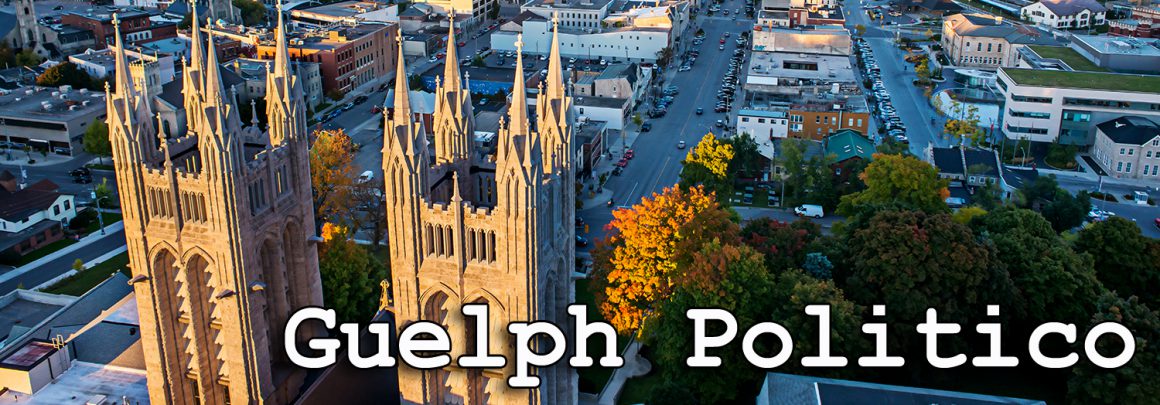Hypothetically speaking, no city government wants to win an award for “Outstanding Achievement in Government Secrecy”, but this year the dubious distinction goes to our nearby neighbour, Stratford. Although the City of Stratford’s efforts to secure a Ministerial Zoning Order (MZO) to build a controversial glass plant came to a swift end last year, the effect on trust in the local government seem to remain.
The Code of Silence Awards are handed out every year by the Canadian Association of Journalists, the Centre for Free Expression at Ryerson University, News Media Canada, and the Canadian Journalists for Free Expression, and they’re handed out in a few different categories. This year’s municipal winner is Stratford, and the reason why comes down to one word: “Xinyi”.
“For more than two years, the Stratford City Council circumvented basic transparency measures as it held secret in-camera meetings and failed to properly report discussions and planning undertaken with Xinyi Canada Glass, the Canadian subsidiary of Hong Kong-based Xinyi Glass Holdings, to build a gigantic $400 million glass factory in the community,” read the media release announcing the award.
The jurists from the various organizations who decide on the allocation of the Code of Silence Awards points to documents outlining how the City of Stratford annexed a piece of land from Perth County while simultaneously Mayor Dan Mathieson reached out to Minister of Municipal Affairs and Housing Steve Clark for the MZO without connecting the two endeavour for the public.
Melissa Verspeeten, spokesperson for Get Concerned Stratford, a group opposed to the construction of the Xinyi plant, noted this specific tactic in explaining her group’s objection to the project in a Guelph Politicast episode from March 2021.
“They base this decision decision on a employment land justification report that was released prior to the annexation that was a 31-page document,” Verspeeten said. “Since then, a Freedom of Information request has been done for that report, and it’s actually 99 pages long. It also mentions Xinyi in the full version, so maybe we didn’t have the whole truth going into the [council] vote.”
“Measure for measure, this is an egregious violation of transparency best practices,” said Paul Deegan, president and CEO of News Media Canada. “The Code of Silence jury notes the extensive limitations placed on the public to obtain information through Freedom of Information.”
Specifically, Deegan notes the three attempts that groups made to get information through FOI, including one time where the City of Stratford wanted nearly $9,000 to fulfill one request, and another time when the City said that there were no records to release. “They should take a bow,” added Deegan.
Last summer, Stratford’s integrity commissioner dismissed five complaints around the handling of the Xinyi file. Robert Swayze said that the tone of the complaints accused the mayor and council of trying to work around the Planning Act, but he didn’t agree that this was the case. “The minister’s zoning order is a nominal procedure. It’s done at the total discretion of the minister, and there’s no need for council to approve it,” Swayze said according to the Stratford Beacon Herald. “It’s really the minister attracting investment to Ontario, and I didn’t feel that any of the complaints were valid.”
At the end of 2021, Mathieson announced that he would not stand for re-election this year, and in an interview with the Beacon Herald, he tried to turn the multitude of negatives around the Xinyi issue into an upside-down frown. “You can never assume that when the community’s voice is heard that it’s a bad thing,” he said, “I think it’s important that you have to take that lesson away from it, and members of council, I think, heard it loud and clear.”
The runner-up was the city council of Surrey, B.C. after Mayor Doug McCallum banned a group of senior citizens from attending city council meetings, physically and remotely, after they came out in opposition of a plan to replace the RCMP with a municipal police force.
Brent Jolly from the Canadian Association of Journalists told Guelph Politico in an email that the City of Guelph was not in contention for this year’s municipal Code of Silence Award, but he did note the Township of Guelph/Eramosa’s vote against approving Xinyi’s plant in their municipality in 2018.

